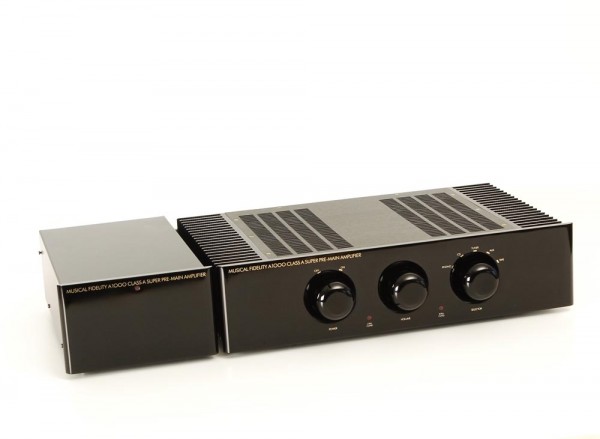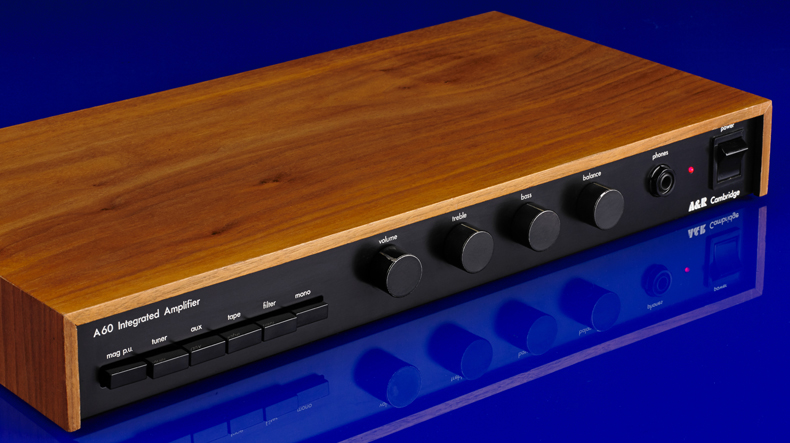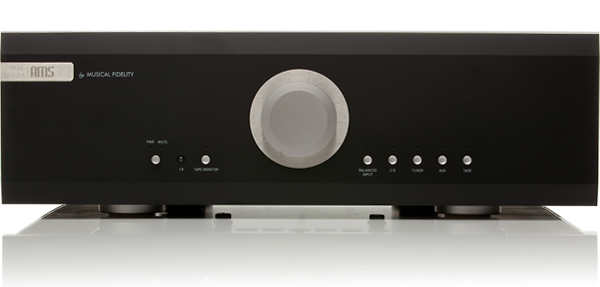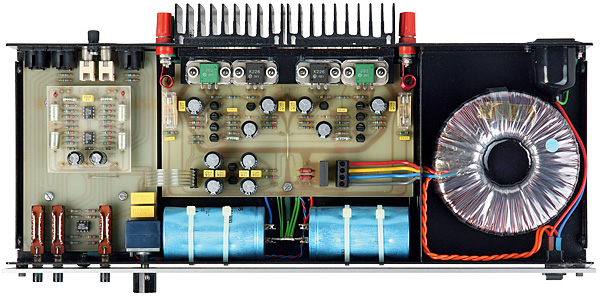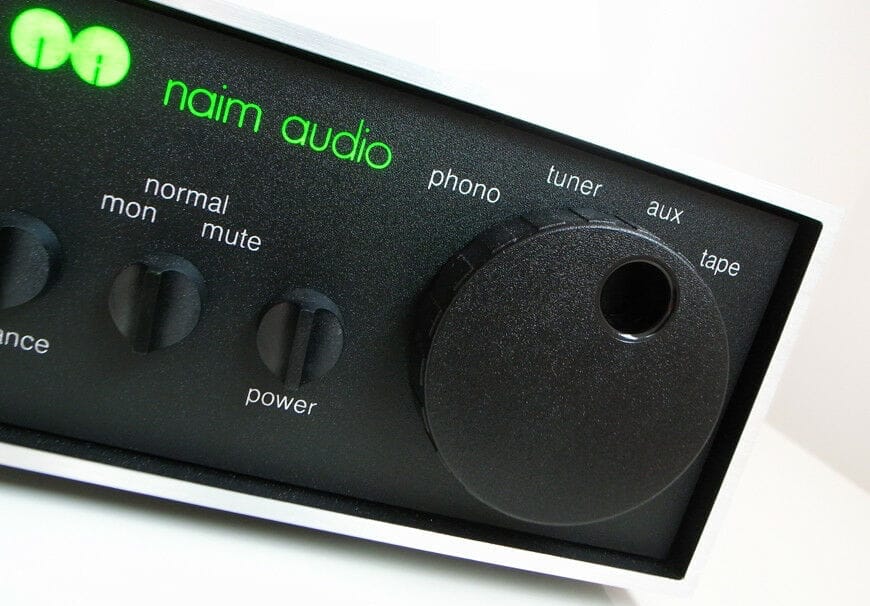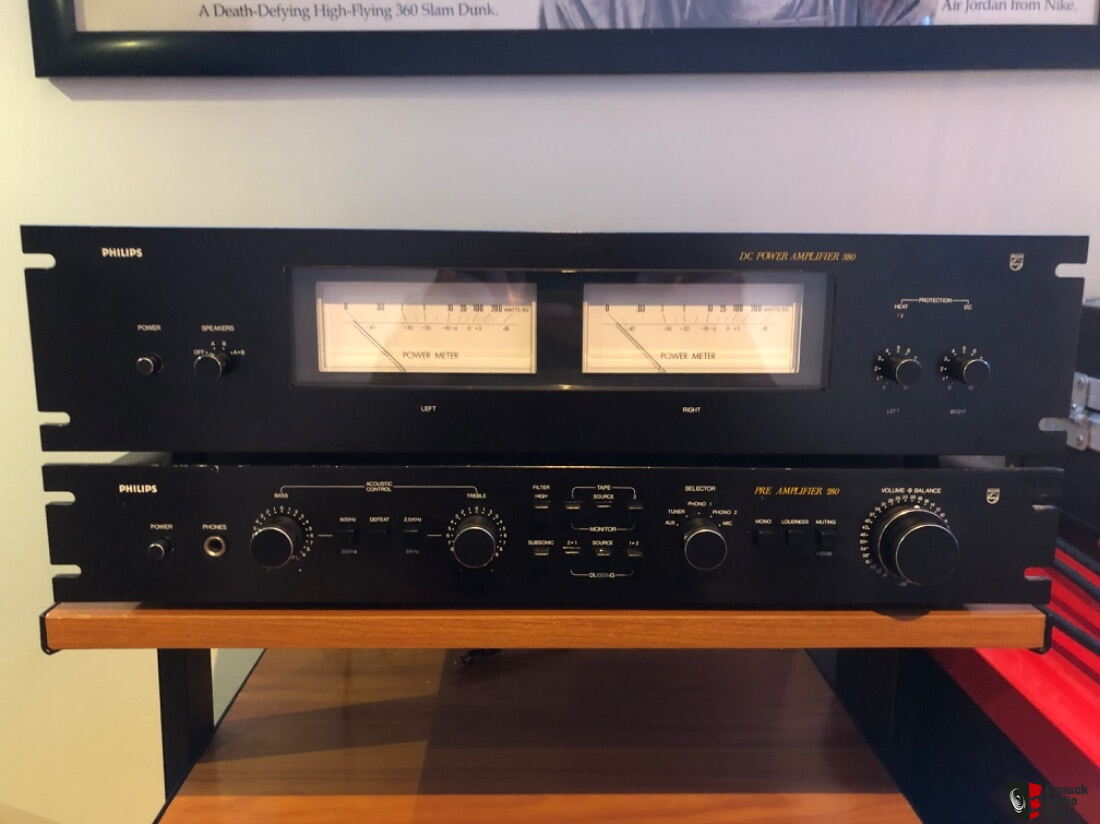Traditionally, British hi-fi amplifiers start off as integrated amps and then progress to preamplifier/power amplifier combos as the price grows. If you’re spending more than £2,000, you won’t be able to get a one-box amplifier — you’ll need two. That’s why, when it debuted in 1990, Musical Fidelity’s A1000 was a bit of a fish out of water. Although it is an expensive and physically huge device, it does have two boxes, which are split between the pre/power amp and the power supply. In certain ways, it was one of the first ‘super integrated amplifiers’ in the United Kingdom.
It’s physically enormous and hefty, weighing in at over 25kg thanks to its black gloss covered brass case, yet it just has three large controls (power on/off, volume, and source), which is rare for a large integrated amplifier, which usually contains a slew of extras. The huge MF put out 50W per channel of pure Class A power (into 8 ohms), and the claim was that it could drive any loudspeaker you wanted to connect to it, which is a claim that isn’t frequently made about such designs. Its 50A current delivery capability, aided no doubt by the massive twin toroidal transformer-equipped offboard power supply, ensured that this was not empty talk.
It’s a joy to listen to. It’s clean, clear, fast, crisp, and lean, but it’s free of the general ‘mush’ that plagues Class AB transistor amplifiers. It may produce less power than its cooler-running competitors, but what it does produce is incredibly effective. The A1000’s sixteen power transistors exercise entire control over a loudspeaker’s bass units, no matter what they are, resulting in a delightfully precise but powerful listening experience. It’s also musically attractive, allowing for a pleasant listening experience. The only critique that may be levelled is the absence of a broad tone palette; by the standards of great valve amplifiers, the large MF can sound a touch black and white. Oh, and if you want to save energy or relax in a cool listening area, don’t get one!
The A1000 can still be tweaked by Musical Fidelity for a very affordable £599 including freight. Setting it up for minimum output DC offset, replacing the decoupling capacitors with polycarbonate/ polyester types, screening the power supply capacitors, replacing the signal path electrolytics with high grade polypropylene, and upgrading the internal wiring with LC/OFC types are all part of the modifications. The choke regulation alignment is adjusted, and some op-amps are replaced with better versions. The A1000 becomes one of the most incredible sounding integrated amplifiers when properly modded, with delicacy, clarity, warmth, and color to match its incredible speed and power. It may not look the part, but it certainly sounds the part!

